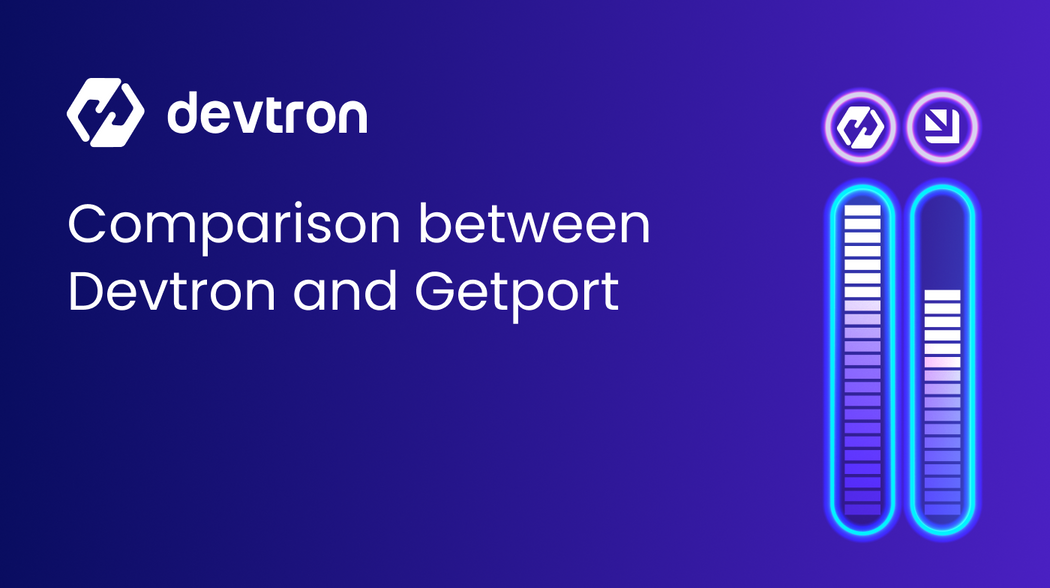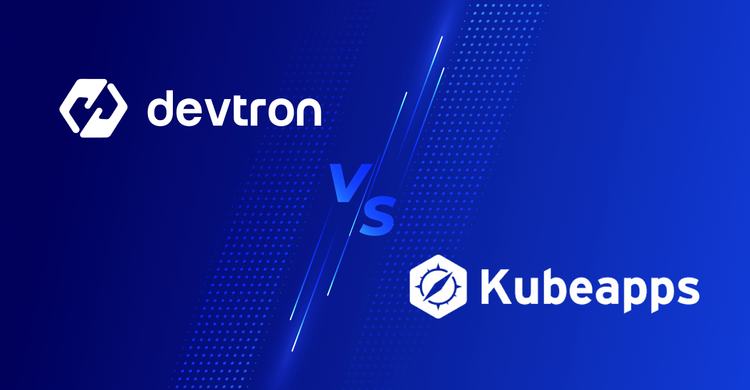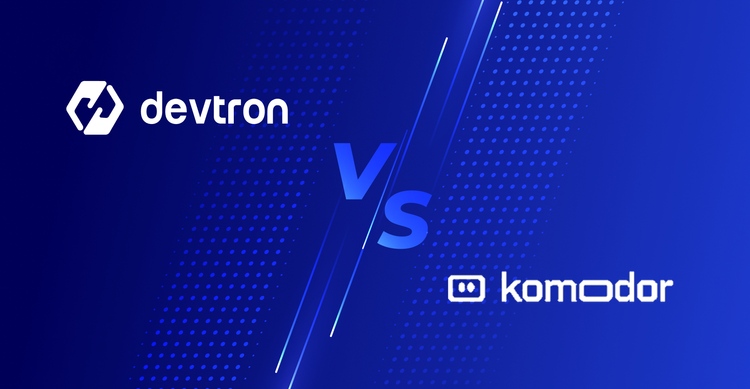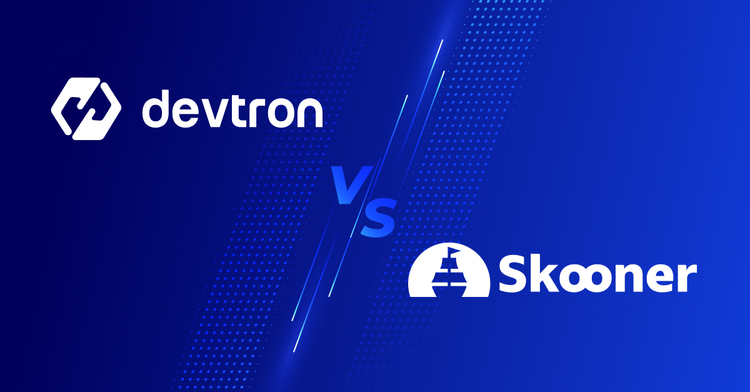In a world where there are several tools available, the best thing that you can do is understand the full differentiation between them. Without that, it’s going to be a constant battle in terms of understanding which tool will give you the best results.
In this blog post, you’ll learn about what an IDP is, the differences between Port and Devtron, and how they are similar.
What’s An Internal Developer Platform (IDP)
An Internal Developer Platform (IDP) is a comprehensive suite of self-service tools and technologies that developers utilize to create and deploy code. It’s a platform developed by the operations team to enable developers to configure, deploy, and
spin up application infrastructure without depending on the Ops team. IDPs are designed to reduce ticket ops, standardize config setups, cut lead time and time to market, and more. By consolidating and simplifying elements of the development process, the primary objective of an IDP is to make a development team’s day-to-day work more manageable, efficient, and collaborative.
IDPs are built by platform teams to pave golden paths and enable self-service for developers. They consist of many different techs and tools, glued together in a way that lowers cognitive load on developers without abstracting away context and underlying technologies1. Platform teams treat their platform as a product and build it based on user research, maintaining and continuously improving it. They specify what resources start up with what environment or at what request, set baseline templates for application configurations, and govern permissions1.
Developers are the primary users of an IDP, and they gain autonomy by changing configurations, deploying, spinning up fully provisioned environments, and rollback. They use the functionalities Deployment Management and Environment Management1. A modern developer needs three panes of glass: the IDE to code, git to merge, and an IDP to ship1. Overall, IDPs are a powerful tool that provides a holistic, no-code solution for building Internal Developer Portals.
What Is Devtron
Devtron is an open-source CI/CD tool specifically designed for Kubernetes. It’s a platform that automates the build and deployment processes, enabling software development teams to focus on meeting business requirements, maintaining code quality, and ensuring security. Devtron leverages Kubernetes auto-scaling and centralized caching to provide unlimited, cost-efficient CI workers. This makes it a highly efficient tool for managing Kubernetes deployments.
In addition to its core CI/CD functionalities, Devtron also offers advanced deployment patterns like blue-green and canary deployments. These features drastically reduce build times and provide zero-downtime deployment patterns. Moreover, Devtron comes with built-in integrations to Prometheus, Grafana, and K8s observability. This makes it easier to monitor deployments and roll back to a specific version if needed. Overall, Devtron is a comprehensive tool that simplifies and optimizes the Kubernetes CI/CD pipeline.
What Is Port
Port is an open-source Internal Developer Platform (IDP) that provides a comprehensive, end-to-end developer experience. It’s designed to enhance the quality, security, and cost control of software development, while also accelerating onboarding and velocity. Port allows platform engineers to build a context-rich software catalog with maturity and quality scorecards. It supports comprehensive, long-running, developer self-service actions on services, resources, and more, as well as workflow automation.
Port is a SaaS-based IDP that is designed to be easy to use and get started with. It offers a set of pre-built features and integrations that can be used to create a functional IDP quickly. Port’s software catalog covers microservices, resources, custom assets and fits any data model, with in-context maturity scorecards. Its portals support any developer self-service action and workflow automation. All in all, Port is a powerful tool that provides a holistic, no-code solution for building Internal Developer Portals.
Key Differences Between Port and Devtron
Devtron and Port are both powerful tools designed to streamline and enhance the software development process, but they serve different purposes and offer different features.
Devtron is an open-source CI/CD tool specifically designed for Kubernetes It automates the build and deployment processes, enabling software development teams to focus on meeting business requirements, maintaining code quality, and ensuring security. Devtron leverages Kubernetes auto-scaling and centralized caching to provide unlimited, cost-efficient CI workers. It also offers advanced deployment patterns like blue-green and canary deployments. These features drastically reduce build times and provide zero-downtime deployment patterns. Moreover, Devtron comes with built-in integrations to Prometheus, Grafana, and K8s observability. This makes it easier to monitor deployments and roll back to a specific version if needed.
On the other hand, Port is an open-source Internal Developer Platform (IDP) that provides a comprehensive, end-to-end developer experience. It’s designed to enhance the quality, security, and cost control of software development, while also accelerating onboarding and velocity. Port allows platform engineers to build a context-rich software catalog with maturity and quality scorecards. It supports comprehensive, long-running, developer self-service actions on services, resources, and more, as well as workflow automation. Port’s software catalog covers microservices, resources, custom assets and fits any data model, with in context maturity scorecards. Its portals support any developer self-service action and workflow automation. All in all, Port is a powerful tool that provides a holistic, no-code solution for building Internal Developer Portals.
I hope you enjoyed reading this blog and got a detailed comparison between the two solutions. If you have any queries, don't hesitate to connect with us. Join the lively discussions and shared knowledge in our actively growing Discord Community.







